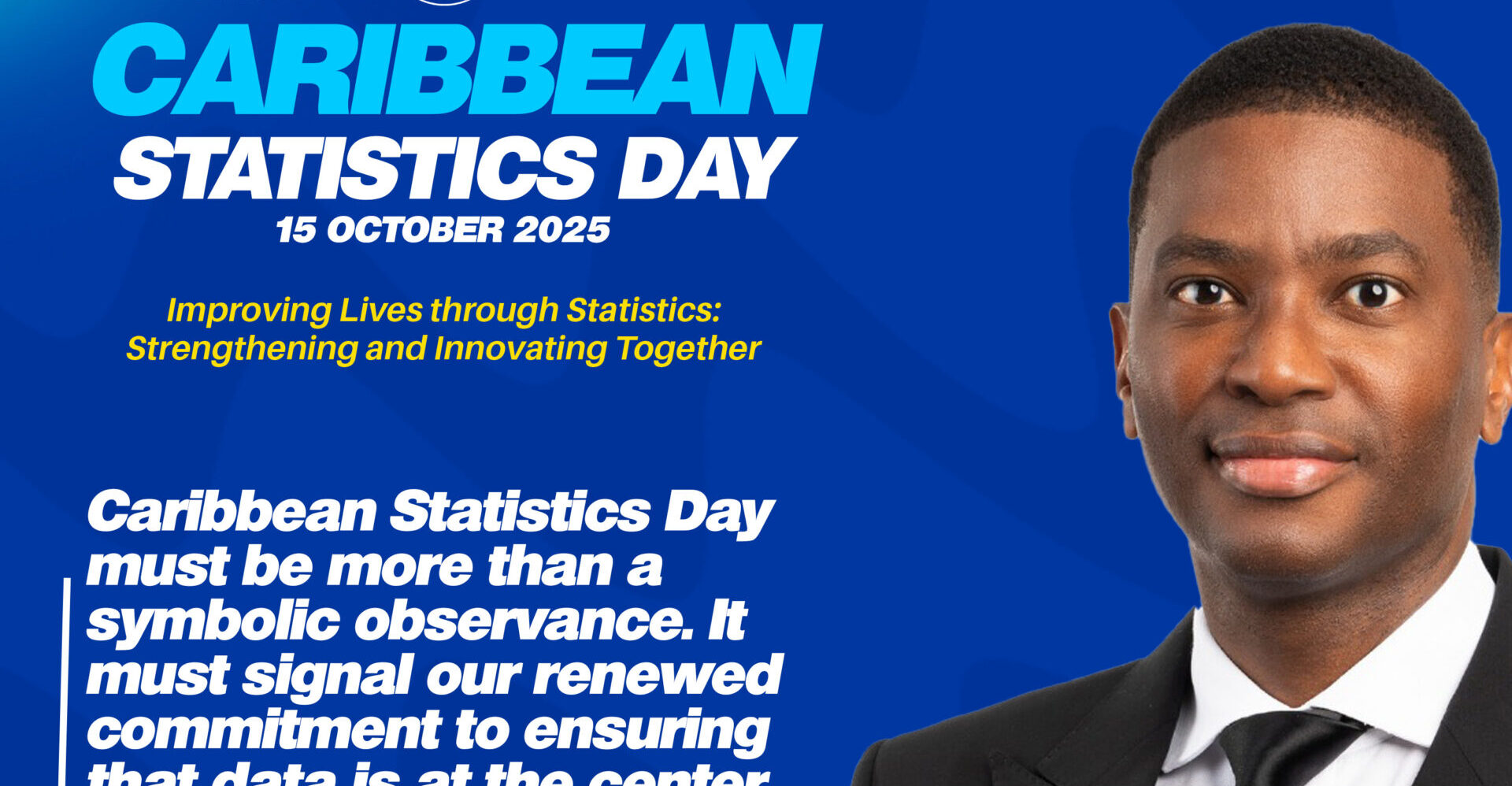As the Caribbean commemorates the 17th Observance of Caribbean Statistics Day, the 2025 theme, “Improving Lives through Statistics, Strengthening and Innovating Together,” underscores the region’s unwavering dedication to leveraging data for sustainable development. This year’s focus highlights the indispensable role of statistics in evidence-based decision-making, regional integration, and equitable growth. In an era marked by global and regional challenges—from climate resilience to economic transformation—robust statistical systems are pivotal in shaping responsive policies and fostering transparency, innovation, and inclusivity. The observance serves as both a celebration of achievements and a call to action for enhancing statistical capacity across the Caribbean. Collaboration and innovation are essential to ensuring that statistics continue to guide progress and improve lives. At the recent 80th Session of the United Nations General Assembly, Caribbean leaders emphasized the paradoxes faced by small island states: vulnerability to external shocks juxtaposed with resilience and innovation. Education, digital literacy, and the integration of science and technology are key to transforming these challenges into opportunities. Across the region, significant strides have been made in statistical development, supported by partnerships with international organizations such as the CARICOM Secretariat, the United Nations, the European Union, the World Bank, and others. Initiatives like the OECS Data for Decision-Making Project have catalyzed advancements in data collection, analysis, and dissemination. Grenada, for instance, has invested in digitizing statistical records, strengthening institutional frameworks, and embedding data-driven approaches in policy design across sectors such as social protection, renewable energy, and climate adaptation. The intersection of advanced technologies—such as artificial intelligence, remote sensing, and geographic information systems—with statistics presents transformative opportunities. These tools can revolutionize data collection and analysis, enabling real-time insights for climate adaptation, food security, and labor market policies. Open access to data empowers civil society, academia, and the private sector to contribute meaningfully to development. Disaggregated data ensures that no group is overlooked in policy responses, fostering inclusive and equitable development. As the CARICOM Lead Head for Science and Technology, Grenada reaffirms its commitment to innovation and the strengthening of regional statistical systems. By harmonizing standards, investing in technology, and promoting data sharing, the Caribbean can build a resilient, inclusive, and data-driven future. Caribbean Statistics Day is not merely symbolic—it is a reaffirmation of the region’s resolve to place data at the heart of its integration and sustainable development agenda. Together, the Caribbean can create a future where every policy is evidence-based, every community benefits from innovation, and every citizen experiences the impact of progress.
STATEMENT: Hon. Dickon Mitchell on Caribbean Statistics Day – A call to strengthen and innovate together
